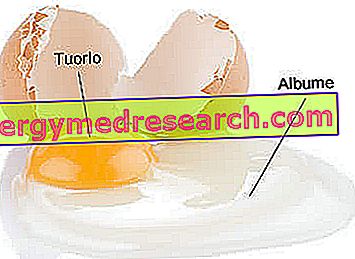RECAL ® is a calcium carbonate drug
THERAPEUTIC GROUP: Mineral supplement: calcium carbonate
IndicationsAction mechanismStudies and clinical effectiveness Usage and dosage instructionsWarnings Pregnancy and lactationInteractionsContraindicationsUndesirable effects
Indications CACIT ® - Calcium carbonate
CACIT ® is indicated in the prevention and treatment of calcium deficiency diseases or in all those conditions where an increased intake of this mineral is required.
Action mechanism CACIT ® - Calcium carbonate
CACIT ® is a drug able to compensate for the nutritional deficiencies of calcium, through the simple oral administration of this element.
Calcium carbonate, taken orally, reaches the gastric environment, where it is promptly converted into calcium chloride, then absorbed by the intestinal mucosa.
More precisely, the enterocytes, through various mechanisms involving an active transport, a passive one and a passage by simple diffusion, absorb the intestinal calcium, pouring it into the circulatory stream, from where, according to the needs of the organism, it can reach the various tissues satisfying it needs or be eliminated through, feces, urine and sweat.
The metabolic fate of this trace element is strongly influenced by hormonal mediators such as parathormone and calcitonin, by vitamins such as calcitriol and above all by the characteristics of one's lifestyle.
Studies carried out and clinical efficacy
1. SUPPLEMENTATION WITH CALCIUM AND RHEUMATOID ARTHRITIS
Study conducted on over 35, 000 women with the important objective of evaluating the effects of calcium supplementation (1 g daily) and vitamin D on the incidence and severity of rheumatoid arthritis.
2. INTEGRATION WITH SOCCER AND METABOLIC DISORDERS
Experimental study conducted on rats that demonstrates how dietary calcium supplementation can prevent the onset and development of metabolic and endocrine diseases in future generations.
3. ABSORPTION PROFILES OF THE CALCIUM CARBONATE
Interesting pharmacokinetic work that attempts to characterize the different absorption and bioavailability profile of calcium carbonate when taken according to particles of different sizes.
Method of use and dosage
CACIT ®
CACIT ® 1000 effervescent tablets of 2500 mg of calcium carbonate equal to 1000 mg of calcium;
CACIT ® 500 effervescent tablets of 1250 mg of calcium carbonate equal to 500 mg of calcium:
for the treatment of adult deficiency pathologies we recommend taking 1000 mg of calcium per day, then one tablet of CACIT ® 000 or two daily tablets of CACIT ® 500 suitably dissolved in a glass of water.
The therapy must necessarily be indicated by your doctor.
CACIT ® warnings - Calcium carbonate
The administration of CACIT ® should be preceded by a medical examination to assess the real need for supplementation with this trace element and the possible presence of pathological conditions incompatible with therapy such as renal failure.
Treatment should be marked by periodic monitoring of blood calcium concentrations, in order to correctly evaluate the therapeutic efficacy.
PREGNANCY AND BREASTFEEDING
Given the increased daily requirement of Calcium that occurs during pregnancy and in the subsequent period of breastfeeding, the intake of CACIT ® is indicated in these periods, provided that it takes place under medical supervision, in order to avoid hypercalcemias dangerous to the health of the pregnant and fetal.
Interactions
The pharmacokinetic characteristics of CACIT ® could be altered by the concomitant intake of vitamin D and analogues, therefore requiring an adjustment of the doses used.
It is advisable to avoid taking antibiotics and in particular tetracyclines within the first three hours after the ingestion of CACIT ® while it is appropriate to remember that the possible administration of digitalis could increase the risk of developing heart rhythm disorders.
Contraindications CACIT ® - Calcium carbonate
Intake of CACIT ® is contraindicated in cases of hypercalcemia, hypercalciuria, nephrolithiasis, renal insufficiency and hypersensitivity to the active substance or to one of its excipients.
Undesirable effects - Side effects
Calcium carbonate intake is usually free of clinically relevant side effects if performed according to appropriate medical indications.
The most complained of symptoms, fortunately limited exclusively to the period of treatment, include nausea, flatulence and constipation.
The use of CACIT ® at high doses or for prolonged periods of time could instead facilitate the appearance of hypercalcaemia with pathological consequences such as vomiting, constipation, abdominal cramps, polyuria, polydipsia, vasomotor disorders and heart rhythm.
Note
CACIT ® is a medicine that can be sold under prescription



